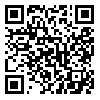Volume 26, Issue 2 (6-2020)
Back to this Issue |
Back to browse issues page
Download citation:
BibTeX | RIS | EndNote | Medlars | ProCite | Reference Manager | RefWorks
Send citation to:



BibTeX | RIS | EndNote | Medlars | ProCite | Reference Manager | RefWorks
Send citation to:
Najafi S, Mansoorian M R, Khosravan S, Jafari Ghaleh Joughi N, Jafari Ani S, Khalili F. Comparison of the effect of lecture and role-playing methods on awareness of healthy nutrition in school-age children. Journal of Hayat 2020; 26 (2) :205-217
URL: http://hayat.tums.ac.ir/article-1-3575-en.html
URL: http://hayat.tums.ac.ir/article-1-3575-en.html
Samane Najafi1 

 , Mohammad Reza Mansoorian2
, Mohammad Reza Mansoorian2 

 , Shahla Khosravan2
, Shahla Khosravan2 

 , Nemat Jafari Ghaleh Joughi3
, Nemat Jafari Ghaleh Joughi3 

 , Sima Jafari Ani3
, Sima Jafari Ani3 

 , Fatemeh Khalili *
, Fatemeh Khalili * 

 4
4


 , Mohammad Reza Mansoorian2
, Mohammad Reza Mansoorian2 

 , Shahla Khosravan2
, Shahla Khosravan2 

 , Nemat Jafari Ghaleh Joughi3
, Nemat Jafari Ghaleh Joughi3 

 , Sima Jafari Ani3
, Sima Jafari Ani3 

 , Fatemeh Khalili *
, Fatemeh Khalili * 

 4
4
1- Dept. of Medical Surgical Nursing, School of Nursing, Gonabad University of Medical Sciences, Gonabad, Iran; Social Development and Health Promotion Research Center, Gonabad University of Medical Sciences, Gonabad, Iran
2- Dept. of Community Health Nursing and Nursing Management, School of Nursing, Gonabad University of Medical Sciences, Gonabad, Iran; Social Development and Health Promotion Research Center, Gonabad University of Medical Sciences, Gonabad, Iran
3- Student Research Committee, Gonabad University of Medical Sciences, Gonabad, Iran
4- Student Research Committee, Gonabad University of Medical Sciences, Gonabad, Iran ,f.khalili.925@gmail.com
2- Dept. of Community Health Nursing and Nursing Management, School of Nursing, Gonabad University of Medical Sciences, Gonabad, Iran; Social Development and Health Promotion Research Center, Gonabad University of Medical Sciences, Gonabad, Iran
3- Student Research Committee, Gonabad University of Medical Sciences, Gonabad, Iran
4- Student Research Committee, Gonabad University of Medical Sciences, Gonabad, Iran ,
Abstract: (2734 Views)
Background & Aim: The healthy nutrition education is one of the most important priorities in all life periods, especially in childhood. The teaching method is also considered one of the important factors for the effectiveness of education. Therefore, the aim of this study was to compare the effect of lecture and role-playing methods on awareness of healthy nutrition in school-age children.
Methods & Materials: This quasi-experimental study was conducted on 60 primary school students in Gonabad city in 2017. Participants were selected by multistage random sampling and allocated into two groups of role-playing and lecture. Students' awareness was measured by a self-structured questionnaire before, immediately and one month after education. Data were analyzed using the SPSS software version 16 by descriptive and inferential statistics. A P-value less than 0.05 was considered significant.
Results: The mean score of awareness for the role-playing group before, immediately and one month after the intervention respectively was 10.77±2.55, 14.1±55.15 and 14.50±1.10 and for the lecture group respectively was 11.07±1.85, 13.72±1.43 and 11.47±2.84 (the score range: 0-16). There was a significant difference in the mean score of awareness before, immediately and one month after the intervention between the two groups (P<0.001), and in the role-playing group, the increase in awareness score was more than in the lecture group.
Conclusion: Considering the greater effect of role-playing method than lecture on healthy nutrition education in school-age children, it is suggested that more attractive, dynamic and effective methods such as role-playing, in accordance with educational behavioral goals, be used in school nutrition education programs. In addition to enhancing educational efficiency, this will make the effects of education and learning more sustainable for students.
Methods & Materials: This quasi-experimental study was conducted on 60 primary school students in Gonabad city in 2017. Participants were selected by multistage random sampling and allocated into two groups of role-playing and lecture. Students' awareness was measured by a self-structured questionnaire before, immediately and one month after education. Data were analyzed using the SPSS software version 16 by descriptive and inferential statistics. A P-value less than 0.05 was considered significant.
Results: The mean score of awareness for the role-playing group before, immediately and one month after the intervention respectively was 10.77±2.55, 14.1±55.15 and 14.50±1.10 and for the lecture group respectively was 11.07±1.85, 13.72±1.43 and 11.47±2.84 (the score range: 0-16). There was a significant difference in the mean score of awareness before, immediately and one month after the intervention between the two groups (P<0.001), and in the role-playing group, the increase in awareness score was more than in the lecture group.
Conclusion: Considering the greater effect of role-playing method than lecture on healthy nutrition education in school-age children, it is suggested that more attractive, dynamic and effective methods such as role-playing, in accordance with educational behavioral goals, be used in school nutrition education programs. In addition to enhancing educational efficiency, this will make the effects of education and learning more sustainable for students.
Send email to the article author
| Rights and permissions | |
 |
This work is licensed under a Creative Commons Attribution-NonCommercial 4.0 International License. |



